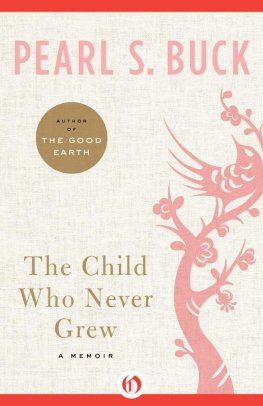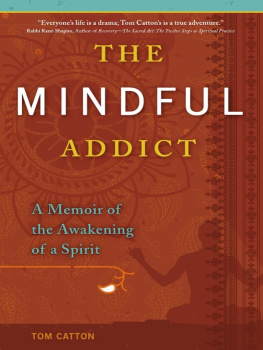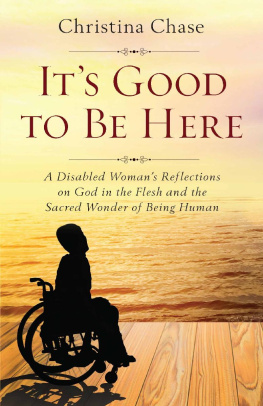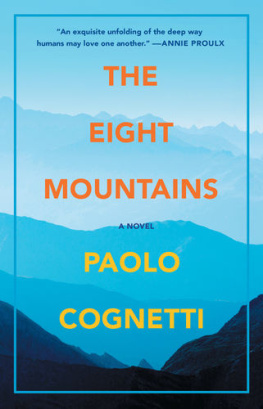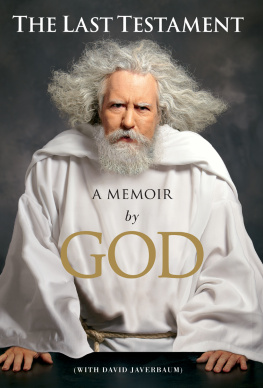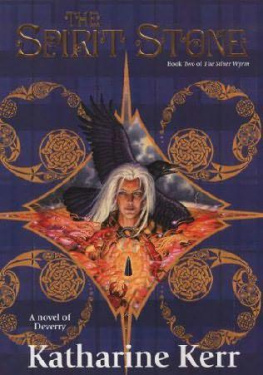Hathaway Katharine Butler - The Little Locksmith: a Memoir
Here you can read online Hathaway Katharine Butler - The Little Locksmith: a Memoir full text of the book (entire story) in english for free. Download pdf and epub, get meaning, cover and reviews about this ebook. City: New York;Castine (Me.);Maine;Castine, year: 2000, publisher: The Feminist Press at CUNY, genre: Religion. Description of the work, (preface) as well as reviews are available. Best literature library LitArk.com created for fans of good reading and offers a wide selection of genres:
Romance novel
Science fiction
Adventure
Detective
Science
History
Home and family
Prose
Art
Politics
Computer
Non-fiction
Religion
Business
Children
Humor
Choose a favorite category and find really read worthwhile books. Enjoy immersion in the world of imagination, feel the emotions of the characters or learn something new for yourself, make an fascinating discovery.

- Book:The Little Locksmith: a Memoir
- Author:
- Publisher:The Feminist Press at CUNY
- Genre:
- Year:2000
- City:New York;Castine (Me.);Maine;Castine
- Rating:4 / 5
- Favourites:Add to favourites
- Your mark:
- 80
- 1
- 2
- 3
- 4
- 5
The Little Locksmith: a Memoir: summary, description and annotation
We offer to read an annotation, description, summary or preface (depends on what the author of the book "The Little Locksmith: a Memoir" wrote himself). If you haven't found the necessary information about the book — write in the comments, we will try to find it.
The Little Locksmith: a Memoir — read online for free the complete book (whole text) full work
Below is the text of the book, divided by pages. System saving the place of the last page read, allows you to conveniently read the book "The Little Locksmith: a Memoir" online for free, without having to search again every time where you left off. Put a bookmark, and you can go to the page where you finished reading at any time.
Font size:
Interval:
Bookmark:

Published by the Feminist Press at the City University of New York
The Graduate Center, 365 Fifth Avenue, New York, NY 10016,
feministpress.org
First Feminist Press edition, 2000
Copyright 1942, 1943 by Coward-McCann, Inc., renewed 1974 by Warren H. Butler
Foreword copyright 2000 by Alix Kates Shulman
Afterword copyright 2000 by Nancy Mairs
The lines from the poem In the Seventies by Thomas Hardy, which appears on page 219, are reprinted from the Collected Poems of Thomas Hardy (New York: Macmillan, 1926).
Excerpts from The Journals and Letters of The Little Locksmith (New York: Coward-McCann, 1946) that appear in the afterword are reprinted with the kind permission of F. Anthony Butler and Jonathan Reardon, the co-trustees of the Katharine Butler Hathaway Trust. Copyright 1946 by Coward-McCann, Inc., renewed 1974 by Warren H. Bulter.
No part of this book may be reproduced or used, stored in any information retrieval system, or transmitted in any form or by any means, electronic, mechanical, photocopying, recording, or otherwise, without prior written permission of the Feminist Press at the City University of New York except in the case of brief quotations embodied in critical articles and reviews.
Originally published in 1943 by Coward-McCann, Inc., New York. This edition published by arrangement with the Katharine Butler Hathaway Trust. The Feminist Press especially thanks the co-trustees, F. Anthony Butler and Jonathan Reardon, for making this new edition possible.
Library of Congress Cataloging-in-Publication Data
Hathaway, Katharine Butler, 18901942
The little locksmith : a memoir / Katharine Butler Hathaway ; foreword by Alix Kates
Shulman ; afterword by Nancy Mairs
p. cm.
1. Hathaway, Katharine Butler, 18901942. 2. Authors, American20th centuryBiography. 3. Potts diseasePatientsBiography. 4. WomenMaineCastineBiography. 5. Castine (Me.)Biography. I. Title
PS3515.A8615 Z465 2000
362.43092dc21
[B] | 00-020345 |
eISBN 978-1-55861-710-0
The Feminist Press is grateful to Helene D. Goldfarb, Joanne Markell, Genevieve Vaughan, and Patricia L. Wentworth and Mark Fagan for their generosity in supporting this publication.
In the early 1980s, soon after I had moved alone to the coast of Maine where my life unexpectedly expanded and deepened, my daughter gave me a copy of The Little Locksmith. Behind the misleading title (this is definitely not a childrens book), among the discards in the forty-eight-cent bin of New York Citys largest secondhand bookstore, she had discerned a rare treasure and, after reading it, inscribed it to me for my birthday. The story of a woman who, in defiance of all expectations for someone of her circumstances and gender, buys a house on the Maine coast and transforms a life of doom into one of triumph was a perfect gift to me.
Holding its own among the best spiritual autobiographies of our time, this story of the liberation of a human being, as its author describes it, so moved me that I wanted to shower copies of it on my friends, promote its republication, teach it to my students, and find out all I could about its author, her life and work. Fortunately, secondhand copies were easy to come by since the book had been a bestseller in 1943 and a main selection of the Book-of-the-Month Club and had even been excerpted in the Atlantic Monthly before publication, during the dark days of World War II. But like so many valuable literary works by women, not many years after the authors death (at age fifty-two, on the very eve of the publication of her memoir), the book languished in attics and was forgotten. I began to buy up enough copies to supply my classes, bless my friends, and quell my fear of running out. But sometimes I found myself down to my last copy and had to begin collecting again. It is therefore with relief, as well as enthusiasm, that I now, these many years after my first memorable encounter with The Little Locksmith, relish the opportunity to introduce to a whole new spectrum of readers Katharine Butler Hathaways masterwork. And how fitting that The Feminist Press, an institution that has faithfully returned to print so many important forgotten books by women, is its new publisher.
Born in 1890 into a loving, well-to-do Massachusetts family, Katharine Butler came of age as a member of that bold generation of educated, somewhat bohemian modern women who were the first to bob their hair, openly embrace sex, question marriage, revere art, and claim a right to every sort of experience and accomplishment. But because Katharines tubercular spine did not grow normally (though the terribleand, to her, unspeakableword hunchback was not among such self-descriptions as deformed, invalid, belonging to the company of the queer, the maimed, the unfit, and, most delicately, a very small childish spinster) it was not expected that she would participate in the vital social and sexual passions of her times. When the teenaged Katharine, having spent the central decade of her childhood bedridden and strapped to a stretcher, realized the limitations that would be imposed upon her life, she was stricken with despair.
Not that she lacked the spirit, talent, or discipline to achieve her burgeoning ambition of asserting herself through writing. (And among the many charms of this book are passages of uncommon wisdom about the writing vocation: the need for patience, humility, solitude, and devotion. Not for nothing did she choose Flaubert as her master.) But the grotesque disparity between her own sparkling, expansive sense of herself in solitude and the painful narrow identity that had been created for me by othersviews that she knew could not exist inside the same body at the same timepresented an excruciating challenge. To meet that challenge, to outwit fate by asserting her own self-created vision in the face of the worlds cruel dismissal and her own shame and fear and anguish, became the central drama of her life, which is recounted in this powerful and inspiring work.
This is also a book about a housea surprisingly large one for a very small childish spinsteroverlooking Penobscot Bay in Castine, Maine. There, in her thirties, after a lifetime of being hovered over and protected like a child, Hathaway took control of her own destiny by using a legacy to purchase a house where, she exults, she could at last be alone and free. Having acquired her house without advice or help from family or friendsindeed against all their expectationsshe determined to find out what I really was and begin to live. In an era when it was still an act of defiance for a womaneven a woman mature enough to be labeled spinsterto choose to live alone according to her own unconventional lights, Hathaways adventure was dense with symbolic meaning, so much so that twice I made the pilgrimage to Castine to experience firsthand the site of her extraordinary spiritual triumph and literary mastery.
The very style she perfected there, somehow spare and extravagant at once, exudes her expanding sense of accomplishment. Eschewing the frivolous or trifling in order to distill the pure emotional essence of her experience, she renders into words both subtleties and extremes of feeling seldom encountered outside the bravest spiritual autobiographies. Each event she recounts is full of consequence. This strategy keeps the intensity of her narrative mounting page by page. Seven years in the writing (193542), this riveting account of the transformation of a life ends with an epilogue in which Hathaway forthrightly confesses, I love this book and can hardly bear to leave it. Rereading it yet again, I know just what she means.
Next pageFont size:
Interval:
Bookmark:
Similar books «The Little Locksmith: a Memoir»
Look at similar books to The Little Locksmith: a Memoir. We have selected literature similar in name and meaning in the hope of providing readers with more options to find new, interesting, not yet read works.
Discussion, reviews of the book The Little Locksmith: a Memoir and just readers' own opinions. Leave your comments, write what you think about the work, its meaning or the main characters. Specify what exactly you liked and what you didn't like, and why you think so.

